My Love & Hate with 卍
我與卍的愛恨糾葛
2017-2024

In December 2016, my mother's passing initiated a year-long Taoist-Buddhist funeral.
For the initial 100 days, all women in the household were confined to an unending cycle of folding paper lotuses and reciting the Heart Sutra, burdened by long hours and stringent rituals prescribed by the daoshi. Amid this labor, the omnipresent symbol "卍" etched itself into our lives, adorning our scriptures, paper for the lotuses, and the very hall where we knelt in remembrance and duty.
在2016年12月,我的母親去世,開啟了一場長達一年的道教佛教葬禮。
因為父親背後大家族的傳統,家中所有女性被要求在不斷折疊紙荷花和誦念《心經》的循環中,同時間大家須負擔著由道士嚴格規定的長時間和嚴格的念經儀式。在這無止盡的勞動之中,佛教符號"卍"無所不在地刻畫在我們的生活每個角落中,裝飾我們的經文、荷花用的紙張,以及我們跪在紀念和履行義務的大廳裡。
For the initial 100 days, all women in the household were confined to an unending cycle of folding paper lotuses and reciting the Heart Sutra, burdened by long hours and stringent rituals prescribed by the daoshi. Amid this labor, the omnipresent symbol "卍" etched itself into our lives, adorning our scriptures, paper for the lotuses, and the very hall where we knelt in remembrance and duty.
在2016年12月,我的母親去世,開啟了一場長達一年的道教佛教葬禮。
因為父親背後大家族的傳統,家中所有女性被要求在不斷折疊紙荷花和誦念《心經》的循環中,同時間大家須負擔著由道士嚴格規定的長時間和嚴格的念經儀式。在這無止盡的勞動之中,佛教符號"卍"無所不在地刻畫在我們的生活每個角落中,裝飾我們的經文、荷花用的紙張,以及我們跪在紀念和履行義務的大廳裡。
Forced to fold paper lotuses (2016-2017)
![]()
![]()
![]()
![]()
![]()
![]()
In the wake of the ceremonial obligations (2017-2018), the act of folding lotuses morphed into an involuntary personal ritual, a haunting refrain I couldn't escape. Secluded within my Chicago studio, I found myself instinctively folding, sketching symbols reminiscent of the lotus papers, wrestling with the ambiguity of my connection to these remnants of tradition.
在儀式性的義務結束後(2017年至2018年),折疊荷花的行為演變成一種不由自主的個人儀式,一種我無法逃避的憂鬱反覆。在芝加哥的工作室裡,我孤立無援地發現自己本能地折疊,描繪出讓我想起荷花紙的符號,掙扎於我與這些傳統遺留物之間的模糊聯繫。
![]()
![]()
A Year Since Then (2017-2018)
![]()
Seeing the “卍” being cancelled (2018-2019)
![]()
![]()
Defending the “卍”? Perhaps... (2019)
![]()
![]()
In truth, I grappled with my intentions. Was I defending the symbol or was this another echo of my mother's passing? I couldn't escape the knowledge that Western gaze was fixated solely on the symbol, potentially reducing my culture to a mere icon. This exploitation gnawed at me, yet, I couldn't help but consider it a form of retribution against a culture that had, in its own way, inflicted pain upon me.
離開日本後,我在芝加哥繼續著對於卍字符號的思考。
事實上,我與自己的意圖苦苦掙扎。當我想在西方語境下捍衛卍字符號時,我是否產生移情作用,純粹是因為它讓我聯想到了我逝世的母親?與此同時,我無法接受「西方凝視」僅僅集中在這個符號上的納粹關聯,片面決定了其他文化中該被捨去的價值。這種利用令我感到痛心,然而,與此同時,我也不禁開始考慮這是否是對一個曾在某種程度上給我帶來痛苦的文化的一種報復。。。我已經不知道我在胡言亂語什麼了,但這也恰恰體現我對這符號及其複雜的感受。
p5 Project: Paper Lotuses (2020)
![]()
https://editor.p5js.org/jjjcho/full/1lJL-zENu
(with sound from 2016 Movie Mr.Church)
Interactive Website Project: A Simple Poll (2022)
![]()
Poll Site: https://a-simple-poll.glitch.me/
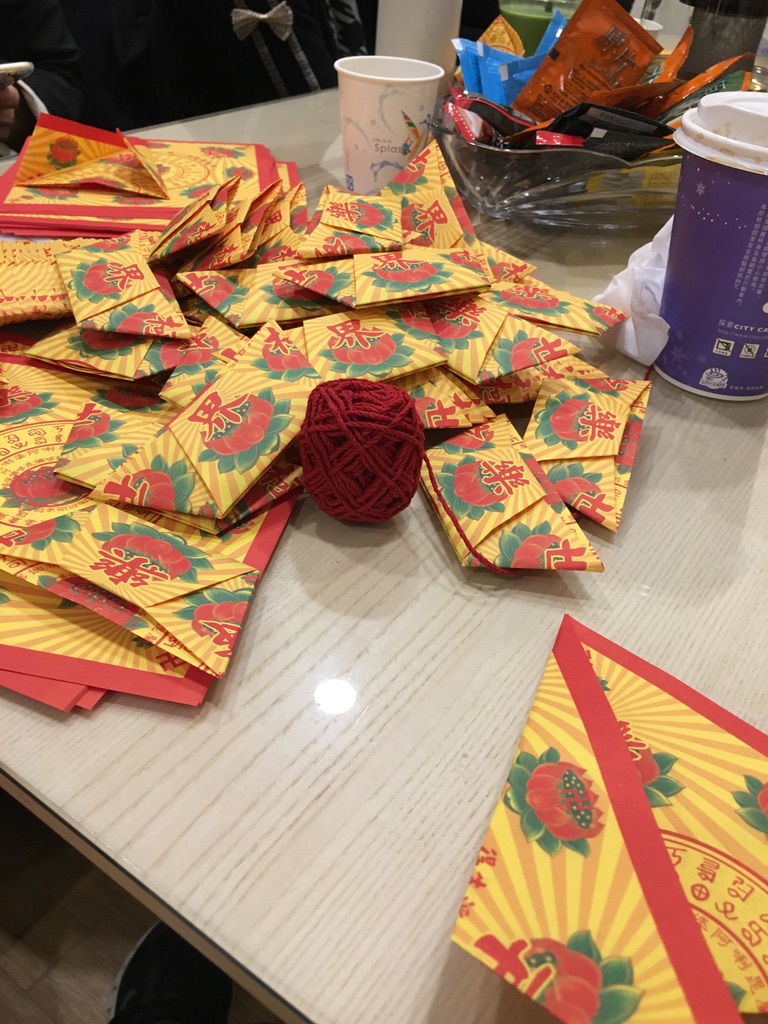
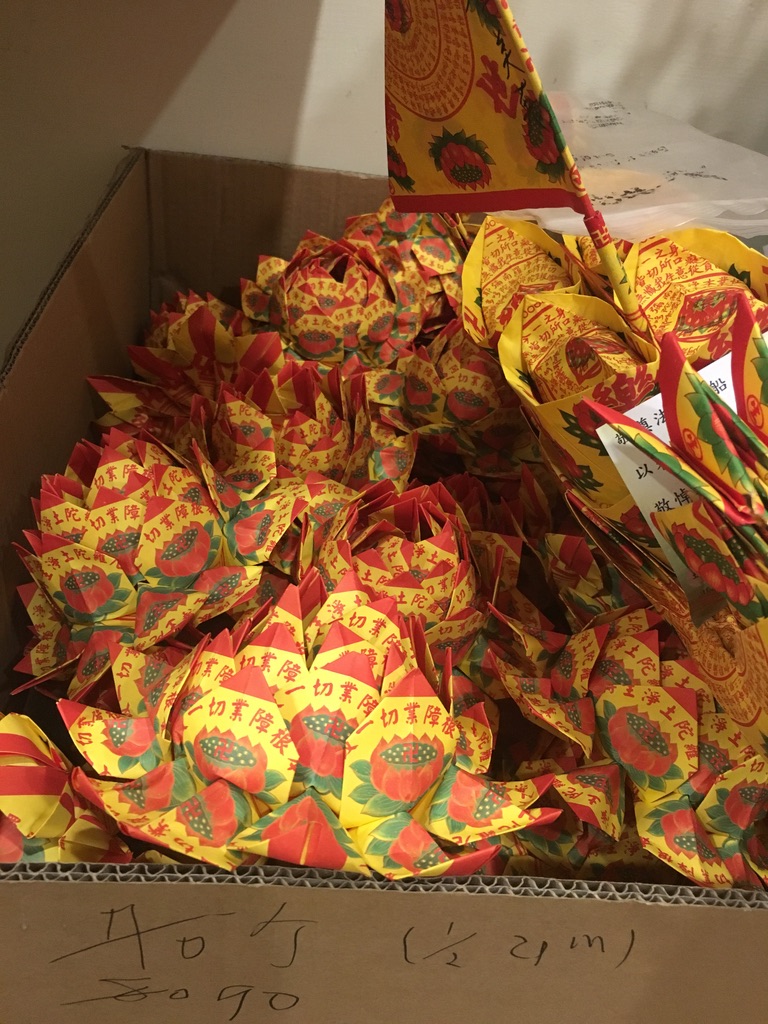
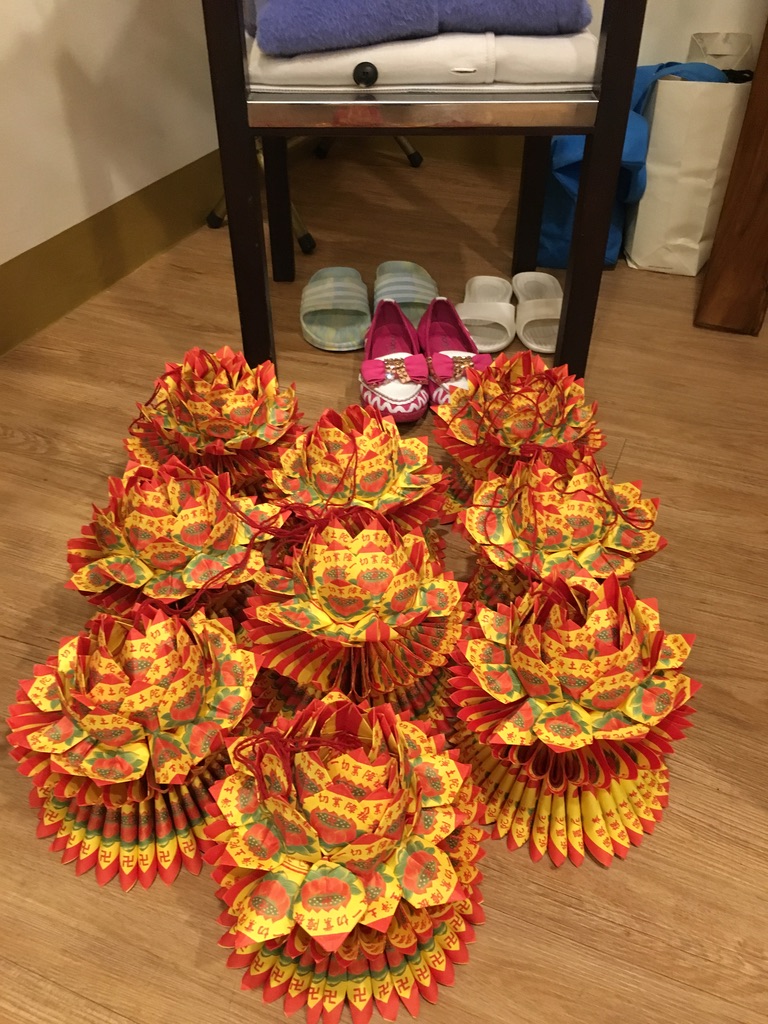
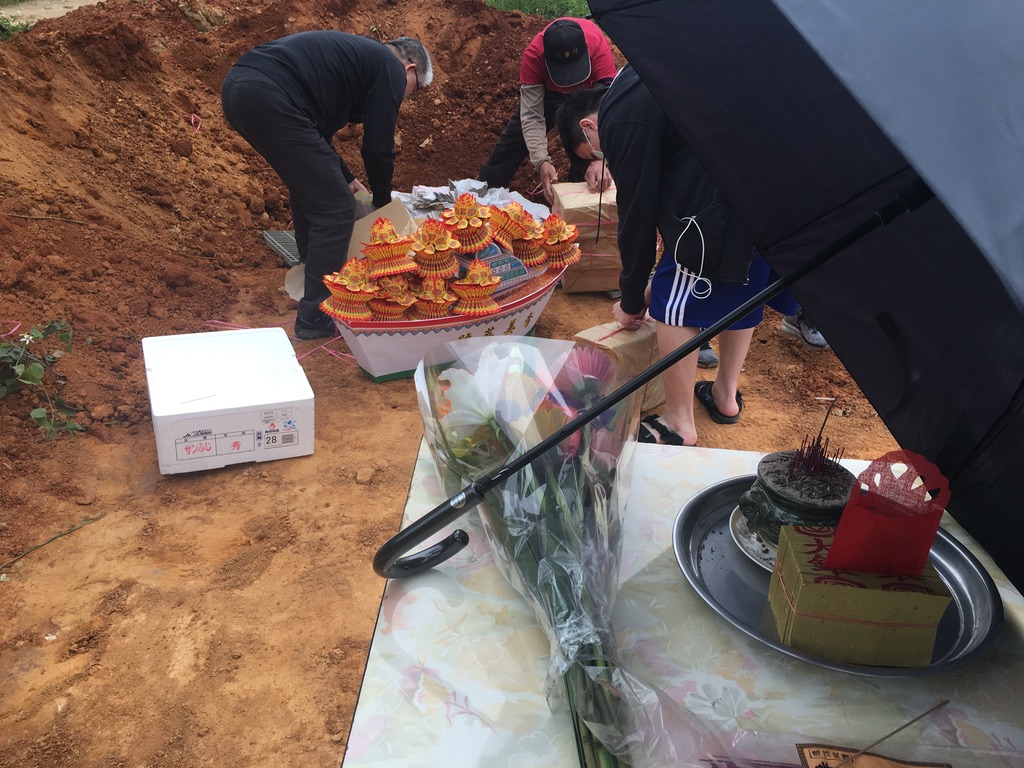
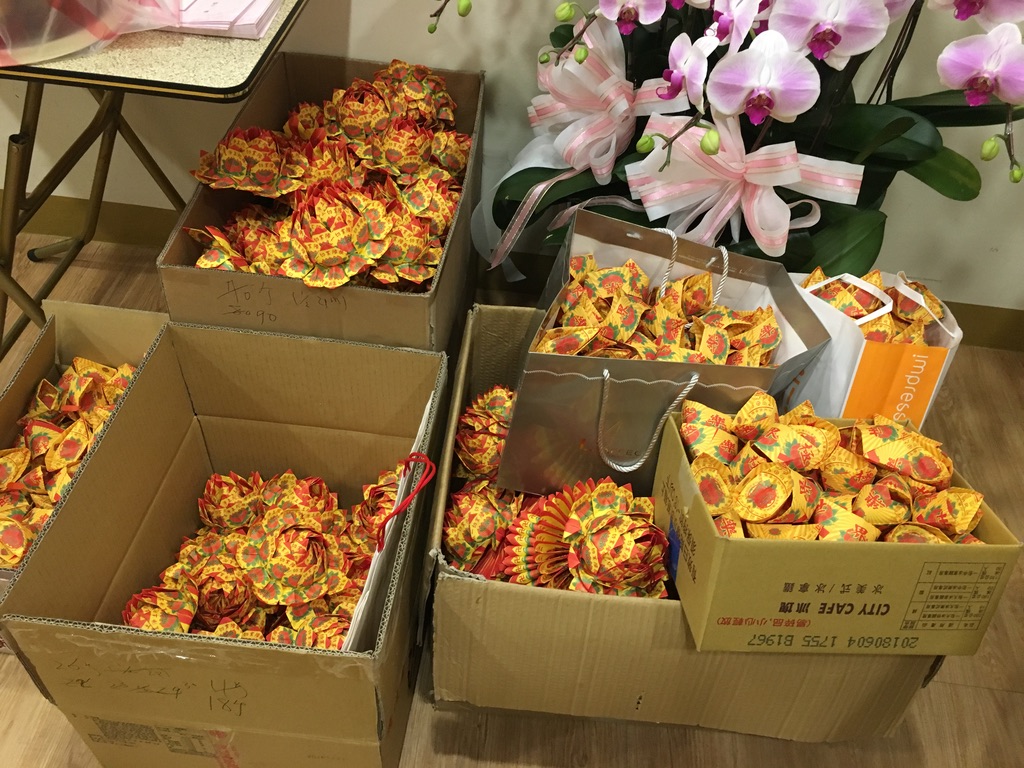
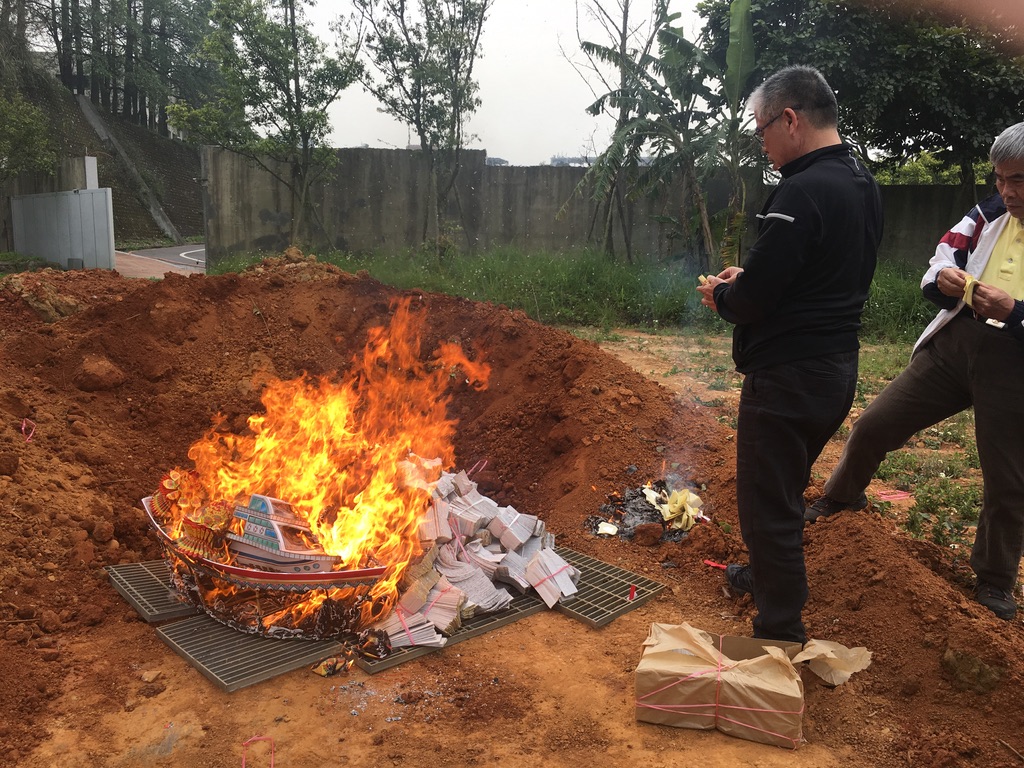
In the wake of the ceremonial obligations (2017-2018), the act of folding lotuses morphed into an involuntary personal ritual, a haunting refrain I couldn't escape. Secluded within my Chicago studio, I found myself instinctively folding, sketching symbols reminiscent of the lotus papers, wrestling with the ambiguity of my connection to these remnants of tradition.
在儀式性的義務結束後(2017年至2018年),折疊荷花的行為演變成一種不由自主的個人儀式,一種我無法逃避的憂鬱反覆。在芝加哥的工作室裡,我孤立無援地發現自己本能地折疊,描繪出讓我想起荷花紙的符號,掙扎於我與這些傳統遺留物之間的模糊聯繫。
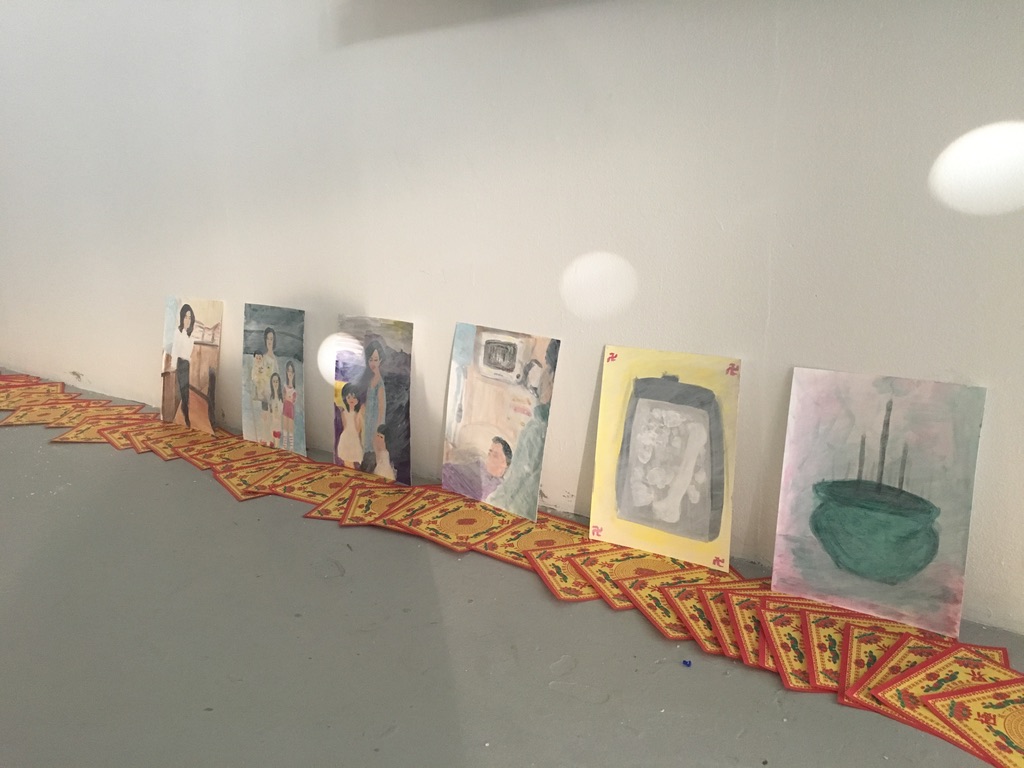
A Year Since Then (2017-2018)
In response, I crafted a video, a testament to my struggle. The symbol "卍" served as a harsh reminder of familial sexism, the poignant loss of my mother, and my own yearning for spiritual guidance.
作為回應,我製作了一段影片作為我奮鬥的見證。在家鄉的遠方,"卍"成為對家庭性別歧視的殘酷提醒,對失去母親深刻的痛,以及我對心靈歸屬之渴望的象徵。
作為回應,我製作了一段影片作為我奮鬥的見證。在家鄉的遠方,"卍"成為對家庭性別歧視的殘酷提醒,對失去母親深刻的痛,以及我對心靈歸屬之渴望的象徵。
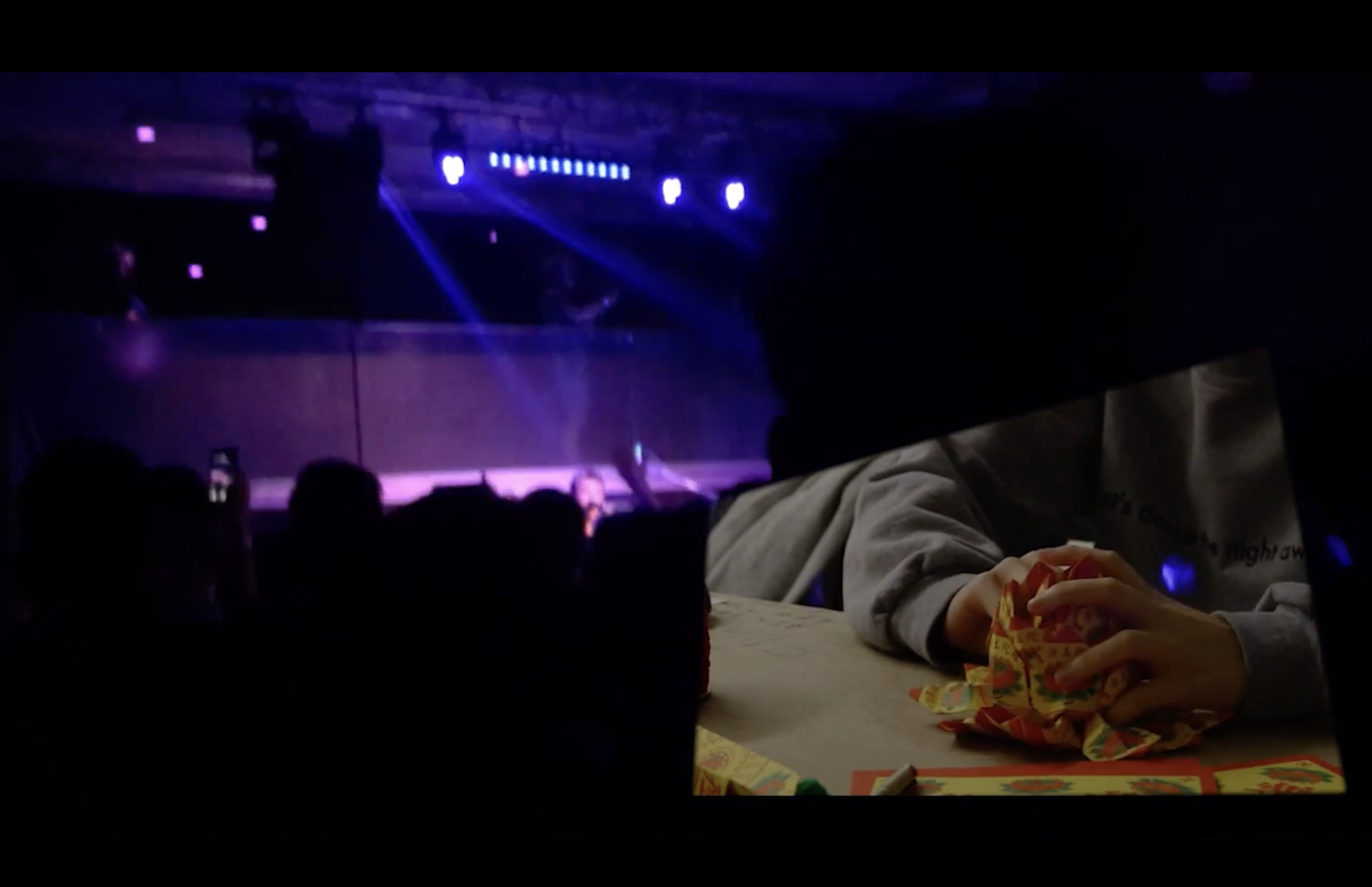
Seeing the “卍” being cancelled (2018-2019)
I relocated to Japan for seven months amidst Tokyo's frenzied preparation for the 2020 Olympics. A contentious debate caught my attention - the proposed removal of all “卍”
symbols from Buddhist temple maps, prompted by Western tourist complaints. My emotions were nebulous, my relationship with the symbol itself complicated, leaving me unsure whether to champion its preservation.
憤怒與悲傷之餘,我對“卍”竟也開始有了同情心,甚至替它感到抱不平。
2018-2019年間,我在東京住了七個月。當時正值全日本為2020年奧運會做熱血準備的時期。晚間日本電視台上一場激烈的辯論引起了我的注意:因為眾多歐美遊客投訴日本寺廟中的卍字符號,認為這跟當年希特勒使用的納粹符號太具關聯性,日本國內提議乾脆將所有佛教相關的“卍”符號給移除。我當下的想法很複雜,正如同我與這個符號的愛恨關係。
憤怒與悲傷之餘,我對“卍”竟也開始有了同情心,甚至替它感到抱不平。
2018-2019年間,我在東京住了七個月。當時正值全日本為2020年奧運會做熱血準備的時期。晚間日本電視台上一場激烈的辯論引起了我的注意:因為眾多歐美遊客投訴日本寺廟中的卍字符號,認為這跟當年希特勒使用的納粹符號太具關聯性,日本國內提議乾脆將所有佛教相關的“卍”符號給移除。我當下的想法很複雜,正如同我與這個符號的愛恨關係。
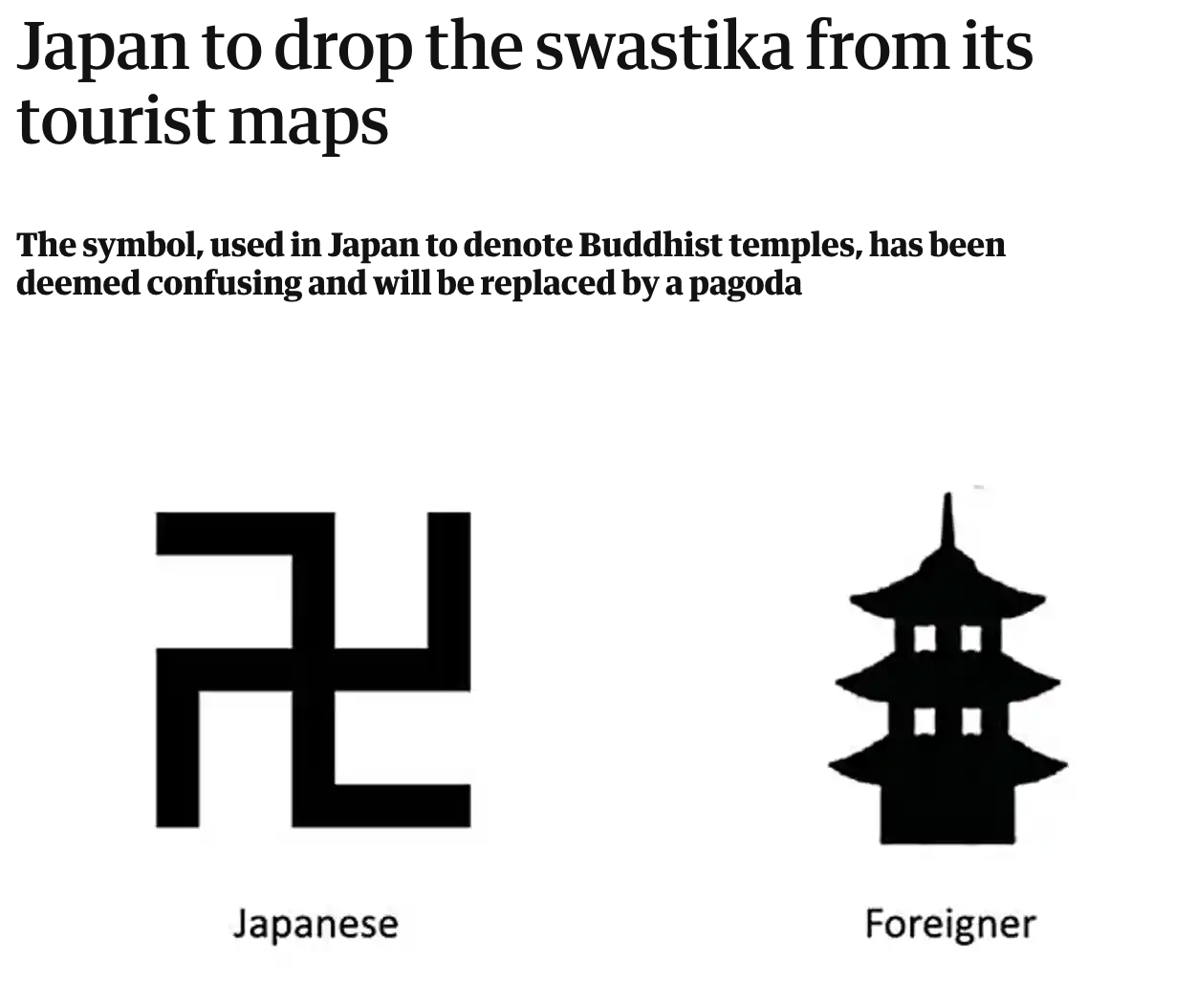
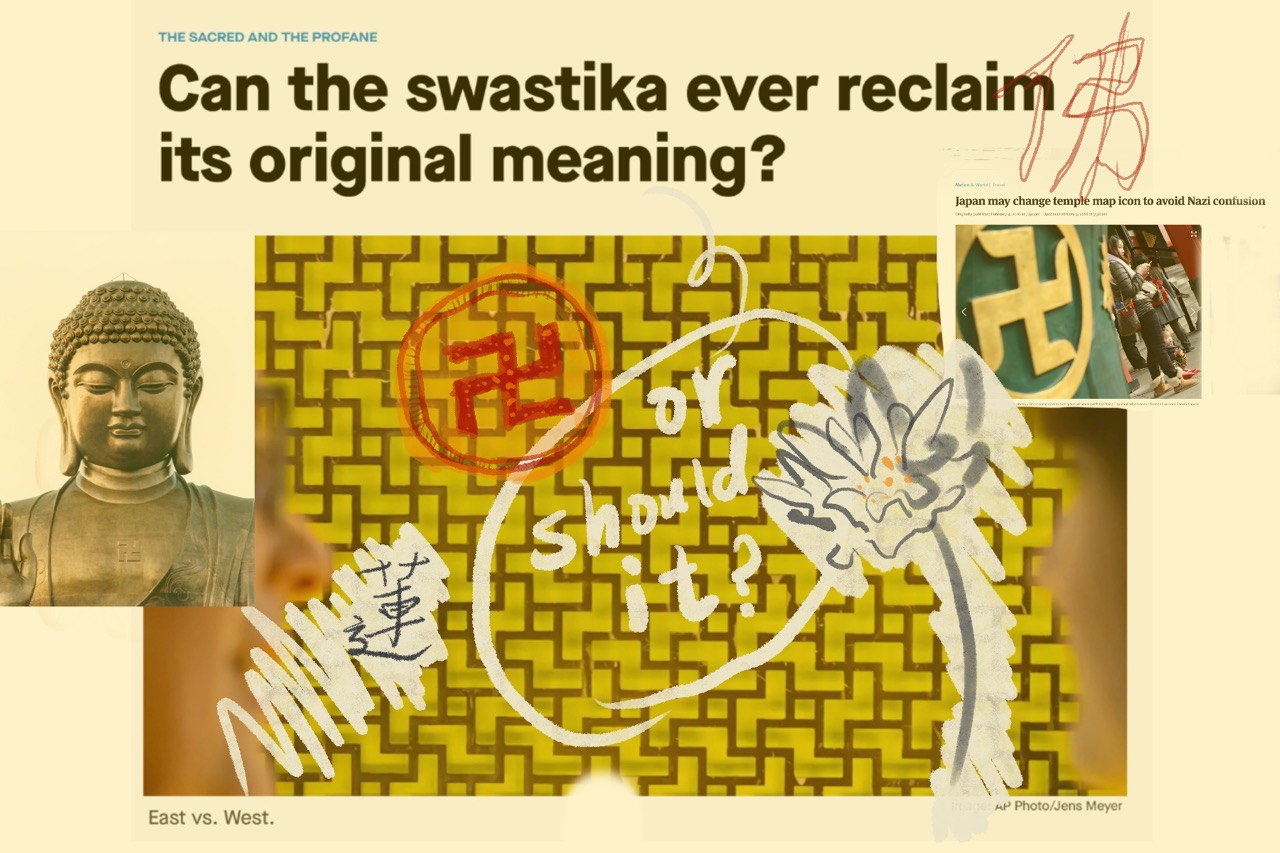
Defending the “卍”? Perhaps... (2019)
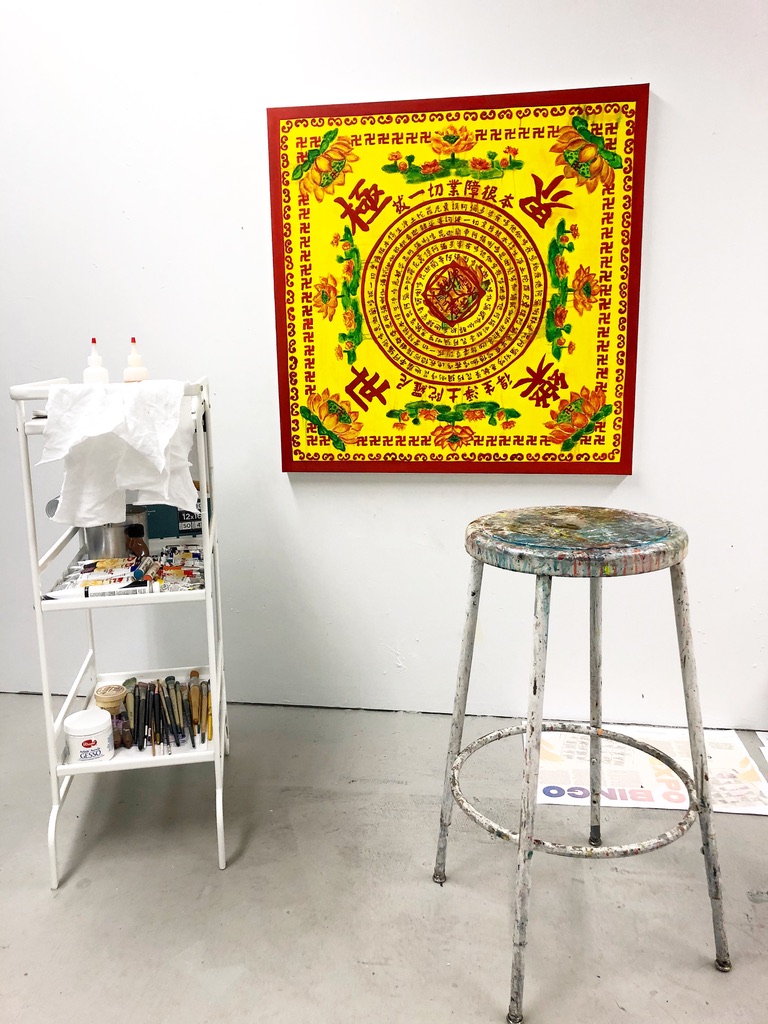

In truth, I grappled with my intentions. Was I defending the symbol or was this another echo of my mother's passing? I couldn't escape the knowledge that Western gaze was fixated solely on the symbol, potentially reducing my culture to a mere icon. This exploitation gnawed at me, yet, I couldn't help but consider it a form of retribution against a culture that had, in its own way, inflicted pain upon me.
離開日本後,我在芝加哥繼續著對於卍字符號的思考。
事實上,我與自己的意圖苦苦掙扎。當我想在西方語境下捍衛卍字符號時,我是否產生移情作用,純粹是因為它讓我聯想到了我逝世的母親?與此同時,我無法接受「西方凝視」僅僅集中在這個符號上的納粹關聯,片面決定了其他文化中該被捨去的價值。這種利用令我感到痛心,然而,與此同時,我也不禁開始考慮這是否是對一個曾在某種程度上給我帶來痛苦的文化的一種報復。。。我已經不知道我在胡言亂語什麼了,但這也恰恰體現我對這符號及其複雜的感受。
p5 Project: Paper Lotuses (2020)
I breathed life into paper lotuses, allowing them to float and fade as they would in the symbolic post-burning ritual. Accompanied by a monologue, a funeral scene soundtrack from a film I saw years ago, the project becomes a moving homage to my mother’s year-long funeral.
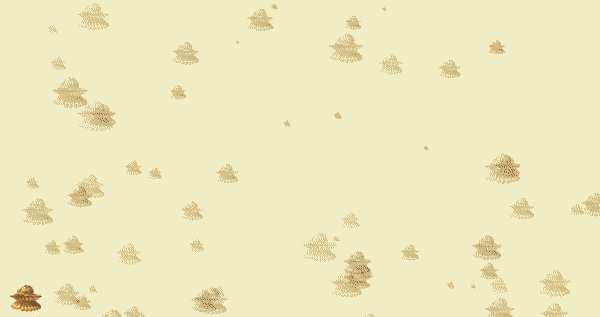
https://editor.p5js.org/jjjcho/full/1lJL-zENu
(with sound from 2016 Movie Mr.Church)
Interactive Website Project: A Simple Poll (2022)
I embarked on a research project, delving into the global semiotic discourse surrounding the swastika symbol. The culmination of this inquiry was an online poll. The poll aims to engender a public consensus on the boundaries of acceptance in our society. Collectively, all participants will help decide where the global society as a whole draws a line on the appropriate usage of the swastika symbol. Of course, a yes-no poll comes with a lot of bias. However, is it not how our society makes decisions on what to be canceled and what not nowadays?
Participants after the poll may be surprised to discover that all options they just deemed "inappropriate" are propoer used of the symbol in existing cultures, some for hundreds or even thousands of years, despite having no connection to Nazism. Yet they still face cancellation. However, we should also not ignore that there are still many neo-Nazis in the world, hence the sensitivity towards the swastika symbol is understandable. I created this work not to advocate for a specific viewpoint on whether the none-Nazi swastika symbols should be completely removed in the world, but simply to encourage mutual learning and respect on all sides through this controversial poll.
當我開始研究交互藝術時,我同時持續了我對於卍字符號的東西方文化霸權研究。我製作了一個研究型作品,深入探討全球關於卐符號的符號學討論。這一探究的結果是一個在線投票。這次投票旨在促成公眾對我們社會接受度界限的共識。根據傳統民主多數決,所有參與者將共同決定全球社會在卐符號適當使用方面的界線。當然,特意製作為是非題的投票方式存在著許多偏見。然而,這不正是我們現今社會決定什麼該被取消、什麼不應被取消的方式嗎?投票結束後的參與者也許會驚訝的發現,他們剛剛認為「不合適」的許多選項,全都是現存文化中,存在數百年甚至千年的卍字符號。即使他們大部分跟納粹完全沒有關係,但也都面臨了「被取消」。然而,我們同時也不該去忽略,線下的西方世界仍然存在著許多新納粹人士,因此對於卍字符號的敏感是可以理解的。我做這件藝術品並不是為了就卍字符號是否該被徹底移除來支持特一觀點,我只是希望不管是哪一方都可以透過這場令人「不適的」投票,互相得到學習和尊重。
Participants after the poll may be surprised to discover that all options they just deemed "inappropriate" are propoer used of the symbol in existing cultures, some for hundreds or even thousands of years, despite having no connection to Nazism. Yet they still face cancellation. However, we should also not ignore that there are still many neo-Nazis in the world, hence the sensitivity towards the swastika symbol is understandable. I created this work not to advocate for a specific viewpoint on whether the none-Nazi swastika symbols should be completely removed in the world, but simply to encourage mutual learning and respect on all sides through this controversial poll.
當我開始研究交互藝術時,我同時持續了我對於卍字符號的東西方文化霸權研究。我製作了一個研究型作品,深入探討全球關於卐符號的符號學討論。這一探究的結果是一個在線投票。這次投票旨在促成公眾對我們社會接受度界限的共識。根據傳統民主多數決,所有參與者將共同決定全球社會在卐符號適當使用方面的界線。當然,特意製作為是非題的投票方式存在著許多偏見。然而,這不正是我們現今社會決定什麼該被取消、什麼不應被取消的方式嗎?投票結束後的參與者也許會驚訝的發現,他們剛剛認為「不合適」的許多選項,全都是現存文化中,存在數百年甚至千年的卍字符號。即使他們大部分跟納粹完全沒有關係,但也都面臨了「被取消」。然而,我們同時也不該去忽略,線下的西方世界仍然存在著許多新納粹人士,因此對於卍字符號的敏感是可以理解的。我做這件藝術品並不是為了就卍字符號是否該被徹底移除來支持特一觀點,我只是希望不管是哪一方都可以透過這場令人「不適的」投票,互相得到學習和尊重。
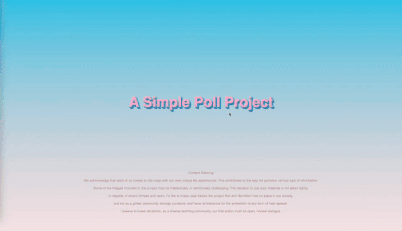
Poll Site: https://a-simple-poll.glitch.me/